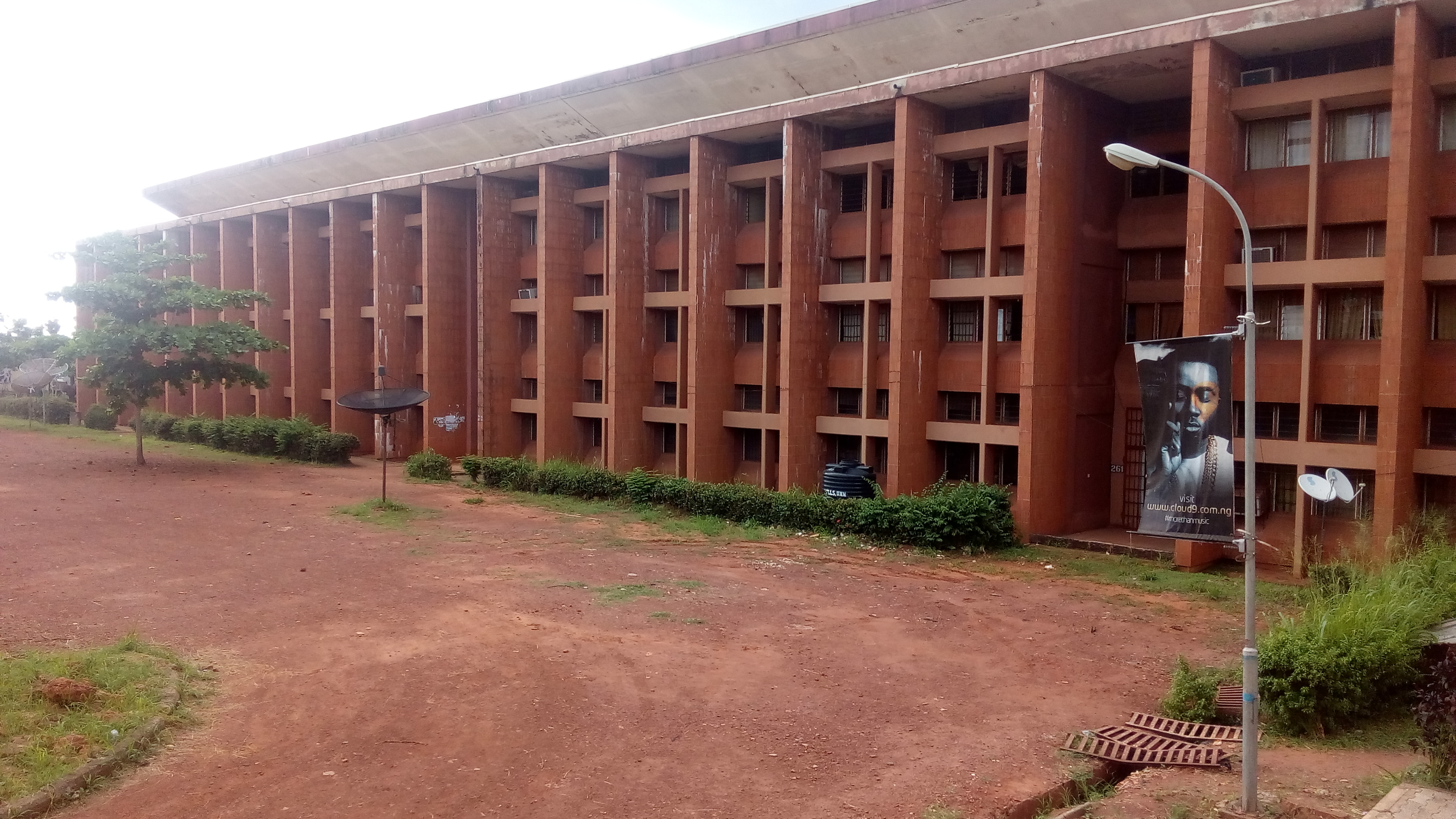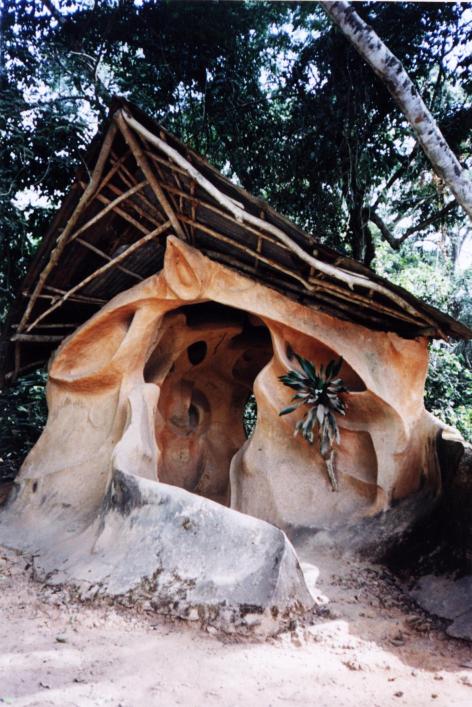|
Gbenga Adefaye
Gbenga Adefaye is a Nigerian Journalist, Administrator and Media Scholar, with over 30 years experience in the Nigerian media industry. He is the Editor-in-Chief of the Vanguard media (Newspapers) and the Provost of the Nigerian Institute of Journalism. More so, he was a two-term president of the Nigerian Guild of Editors (2008-2013) and a member of the Governing council of the University of Lagos, Lagos, Nigeria. Education He obtained a bachelor's degree in Mass communication from the University of Nigeria, Nsukka,1984 and a Master's degree in Mass Communication from the University of Lagos, Lagos in1988 Career Gbenga began his career as a reporter with the Nigerian Television Authority in 1985. He joined the Vanguard Media in 1986 and has risen from being a Reporter/Feature Writer to Editorial Training Manager/Chief Sub-editor and presently the Editor-in-Chief and General Manager of the Vanguard Media(Newspaper). In addition, Mr. Gbenga Adefaye was appoint ... [...More Info...] [...Related Items...] OR: [Wikipedia] [Google] [Baidu] |
Nigerians
Nigerians or the Nigerian people are citizens of Nigeria or people with ancestry from Nigeria. The name Nigeria was taken from the Niger River running through the country. This name was allegedly coined in the late 19th century by British journalist Flora Shaw, who later married Baron Frederick Lugard, a British colonial administrator. ''Nigeria'' is composed of various ethnic groups and cultures and the term Nigerian refers to a citizenship-based civic nationality. Nigerians derive from over 250 ethnic groups and languages.Toyin Falola. ''Culture and Customs of Nigeria''. Westport, Connecticut, USA: Greenwood Press, 2001. p. 4. Though there are multiple ethnic groups in Nigeria, economic factors result in significant mobility of Nigerians of multiple ethnic and religious backgrounds to reside in territories in Nigeria that are outside their ethnic or religious background, resulting in the mixing of the various ethnic and religious groups, especially in Nigeria's cities.Toyin Fa ... [...More Info...] [...Related Items...] OR: [Wikipedia] [Google] [Baidu] |
University Of Nigeria
The University of Nigeria, commonly referred to as UNN, is a federal university located in Nsukka, Enugu State, Eastern part of Nigeria. Founded by Nnamdi Azikiwe in 1955 and formally opened on 7 October 1960, the University of Nigeria has three campuses in Enugu State– Nsukka, Enugu, and Ituku-Ozalla – and the Aba campus in Abia State. The University of Nigeria is the first full-fledged indigenous and first autonomous university in Nigeria, modelled upon the American educational system. It was the first land-grant university in Africa and one of the five most reputed universities in Nigeria. The university has 15 Faculties and 102 academic departments. The university offers 108 undergraduate programs and 211 postgraduate programmes. The university celebrated its 50th anniversary in October 2010, and would have celebrated its 60th anniversary in October, 2020 save for the COVID-19 pandemic. History A law to establish a university in the Eastern Region of Nigeria was passe ... [...More Info...] [...Related Items...] OR: [Wikipedia] [Google] [Baidu] |
Nigerian Editors
Nigerians or the Nigerian people are citizens of Nigeria or people with ancestry from Nigeria. The name Nigeria was taken from the Niger River running through the country. This name was allegedly coined in the late 19th century by British journalist Flora Shaw, who later married Baron Frederick Lugard, a British colonial administrator. ''Nigeria'' is composed of various ethnic groups and cultures and the term Nigerian refers to a citizenship-based civic nationality. Nigerians derive from over 250 ethnic groups and languages.Toyin Falola. ''Culture and Customs of Nigeria''. Westport, Connecticut, USA: Greenwood Press, 2001. p. 4. Though there are multiple ethnic groups in Nigeria, economic factors result in significant mobility of Nigerians of multiple ethnic and religious backgrounds to reside in territories in Nigeria that are outside their ethnic or religious background, resulting in the mixing of the various ethnic and religious groups, especially in Nigeria's cities.To ... [...More Info...] [...Related Items...] OR: [Wikipedia] [Google] [Baidu] |
Nigerian Journalists
Nigerians or the Nigerian people are citizens of Nigeria or people with ancestry from Nigeria. The name Nigeria was taken from the Niger River running through the country. This name was allegedly coined in the late 19th century by British journalist Flora Shaw, who later married Baron Frederick Lugard, a British colonial administrator. ''Nigeria'' is composed of various ethnic groups and cultures and the term Nigerian refers to a citizenship-based civic nationality. Nigerians derive from over 250 ethnic groups and languages.Toyin Falola. ''Culture and Customs of Nigeria''. Westport, Connecticut, USA: Greenwood Press, 2001. p. 4. Though there are multiple ethnic groups in Nigeria, economic factors result in significant mobility of Nigerians of multiple ethnic and religious backgrounds to reside in territories in Nigeria that are outside their ethnic or religious background, resulting in the mixing of the various ethnic and religious groups, especially in Nigeria's cities.Toyin Fa ... [...More Info...] [...Related Items...] OR: [Wikipedia] [Google] [Baidu] |
Nigeria Union Of Journalists
Nigeria Union of Journalists (NUJ) is a network of media professionals established to advance the safety and welfare of Nigerian journalists. It is an independent trade organization with no political leaning or ideological disposition. NUJ is founded in the underlying belief that speaking with one voice as a professional body it can push for the interest of its members particularly in the areas of working conditions and rights: freedom of expression, safety, job security and fair remuneration, gender equality, freedom of association, copyright protection and fight against all forms of discrimination and suppression. NUJ organizes and supports campaigns aimed at protecting journalists’ rights and strengthening collective agreements. NUJ was founded on 15 March 1955 in Lagos during Nigeria's struggle for independence from British rule. It is affiliated to the Nigeria Labour Congress. Its membership grew from 3,950 in 1988 to 35,000 in 2005.{{cite book , last1=LeVan , first1=A. ... [...More Info...] [...Related Items...] OR: [Wikipedia] [Google] [Baidu] |
Osun State
Osun State (; yo, Ìpínlẹ̀ Ọ̀ṣun), occasionally known as the State of Osun by the state government, is a state in southwestern Nigeria; bounded to the east by Ekiti and Ondo states, to the north by Kwara State, to the south by Ogun State and to the west by Oyo State. Named for the River Osun—a vital river which flows through the state—the state was formed from the southeast of Oyo State on 27 August 1991 and has its capital as the city of Osogbo. Of the 36 states of Nigeria, Osun is the ninth smallest in area and nineteenth most populous with an estimated population of about 4.7 million as of 2016. Geographically, the state is divided between the Nigerian lowland forests in most of the state and the drier Guinean forest–savanna mosaic in the north. The major geographical features are rivers including the state's namesake, the River Osun which bisects the state's interior before forming much of the state's southwestern border with Oyo State and flowing south. ... [...More Info...] [...Related Items...] OR: [Wikipedia] [Google] [Baidu] |
Lagos State
Lagos State ( yo, Ìpínlẹ̀ Èkó) is a States of Nigeria, state in South West (Nigeria), southwestern Nigeria. Of the 36 States of Nigeria, states, it is both the List of Nigerian states by population, most populous and List of Nigerian states by area, smallest in area. Bounded to the south by the Bight of Benin and to the west by the Benin–Nigeria border, international border with Benin Republic, Lagos State borders Ogun State to the east and north making it the only Nigerian state to border only one other state. Named for the city of Lagos—the List of urban areas in Africa by population, most populous city in Africa—the state was formed from the Western Region, Nigeria, Western Region and the former Federal Capital Territory on 27 May 1967. Geographically, Lagos State is dominated by bodies of water with nearly a quarter of the state's area being lagoons, creeks, and rivers. The largest of these bodies are the Lagos Lagoon, Lagos and Lekki Lagoon, Lekki lagoons in the ... [...More Info...] [...Related Items...] OR: [Wikipedia] [Google] [Baidu] |
Pan-Atlantic University
Pan-Atlantic University is a private, non-profit educational institution in Lekki, Lagos State. Timeline The university had its origin as the Lagos Business School (LBS), established in 1991. The federal government approved the university as Pan-African University in 2002, and the LBS became its first school. The Ajah Campus was completed in 2003 and in 2010 work began on the Ibeju-Lekki campus. In September 2011 the university launched the Virtual Museum of Modern Nigerian Art, a website created by Jess Castellote, a Spanish architect that includes over 400 works from 81 artists, including pioneering Nigerian artists such as Aina Onabolu and Bruce Onobrakpeya and emerging artists such as Richardson Ovbiebo and Babalola Lawson. In November and December 2011 the EDC, for the first time, marked the Global Entrepreneurship Week (GEW), with a series of events in Lagos. Many Nigerians have ambitions to start a business, and the conference was extremely well-attended. EDC has ... [...More Info...] [...Related Items...] OR: [Wikipedia] [Google] [Baidu] |
National Broadcasting Commission
The National Broadcasting Commission is the broadcast regulator of the Federal Republic of Nigeria. The commission was set up on August 24, 1992, by Decree 38 of 1992 later amended as an act of the National Assembly by Act 55 of 1999 and now known as National Broadcasting Commission Laws of the Federation 2004, CAP N11 to among other responsibilities, regulate and control the broadcasting industry in Nigeria. The commission in its advisory capacity to the federal government regularly adopts scientific research methods to gather data, analyze trends in line with the dynamism of the industry and advise government accordingly. It is also the responsibility of the commission to receive, process and consider applications for the establishment, ownership or operation of radio and television stations including cable television service, direct satellite broadcast and any other medium of broadcasting; radio and television stations owned, established or operated by the federal, state and lo ... [...More Info...] [...Related Items...] OR: [Wikipedia] [Google] [Baidu] |
Nigerian Television Authority
The Nigerian Television Authority or NTA is a Nigerian government-owned and partly commercial broadcast station. Originally known as Nigerian Television (NTV), it was inaugurated in 1977 with a monopoly on national television broadcasting, after a takeover of regional television stations by military governmental authorities in 1976. After declining interest from the public in government-influenced programming, it lost its monopoly over television broadcasting in Nigeria in the 1990s. The NTA runs the largest television network in Nigeria with stations in several parts of the country. It is widely viewed as the "authentic voice" of the Nigerian government. History Early broadcast stations in Nigeria The first television station in Nigeria, the Western Nigerian Government Broadcasting Corporation (WNTV) began broadcasting on 31 October 1959. Its first Chairman was Olapade Obisesan, a lawyer trained in the United Kingdom and the son of Akinpelu Obisesan, an Ibadan socialite and f ... [...More Info...] [...Related Items...] OR: [Wikipedia] [Google] [Baidu] |
Master's Degree
A master's degree (from Latin ) is an academic degree awarded by universities or colleges upon completion of a course of study demonstrating mastery or a high-order overview of a specific field of study or area of professional practice. A master's degree normally requires previous study at the bachelor's degree, bachelor's level, either as a separate degree or as part of an integrated course. Within the area studied, master's graduates are expected to possess advanced knowledge of a specialized body of and applied topics; high order skills in |



